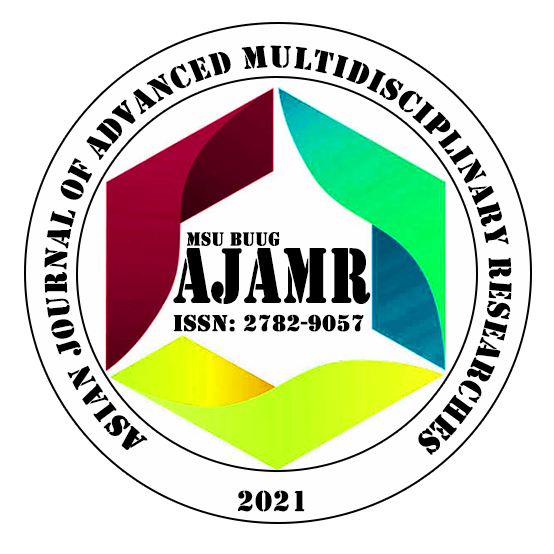

Sheila C. Butron1 , Marianie P. Canico1
1College of Education, Mindanao State University -Buug, Zamboanga Sibugay, 2College of Education, Mindanao State University-Marawi City, Lanao del Sur
Email: sheilabutronmsu@gmail.com
ABSTRACT
In this 21st century learning, the trend in pedagogy is more akin to constructivism and progressivism as opposed to the more traditional essentialist. The purpose of this study is to determine the level of conceptual understanding of Grade 10 students in electricity and magnetism, and to examine how this understanding correlates with variables such as age, gender, and their latest grade in science. The respondents were fifty-eight Grade 10 students from Mindanao State University- Integrated Laboratory School (MSU-ILS) enrolled during the academic year 2018-2019. This study utilized a descriptive-correlation method of research. The 50-item questionnaire was administered to the respondents through stratified random sampling. The statistical tools used were frequency and percentage, weighted mean and standard deviation, Pearson Correlation, and Point Biserial Correlation Coefficient. The gathered data were statistically analyzed and interpreted. The findings revealed that majority of the respondents were 17 years old, female, and had a grade of 82.00 which was described as fair or satisfactory. The respond-ents obtained mean score of 37.52 for male and 36.85 for female during their midterm examination which indicates that their level of conceptual understanding is average. Furthermore, the findings depicted that there is no significant relationship between the respondents’ profile and their level of conceptual understanding. Based on the empirical results of the study, the average level of conceptual understanding in electricity and magnetism is only fair/satisfactory, it is recommended that educators develop targeted interventions to improve this understanding. This could include interactive simulations, practical laboratory experiments, and inquiry-based learning activities specifically designed to enhance conceptual clarity.
Keywords: conceptual understanding, electricity, magnetism